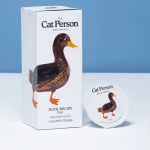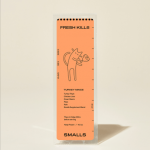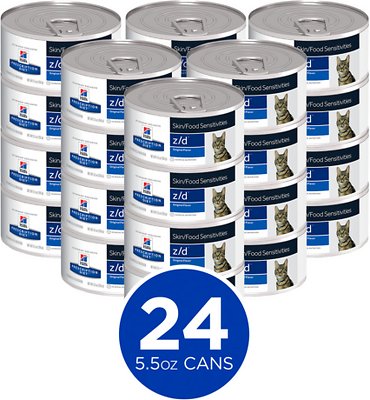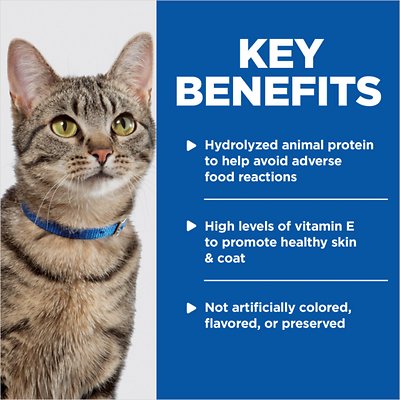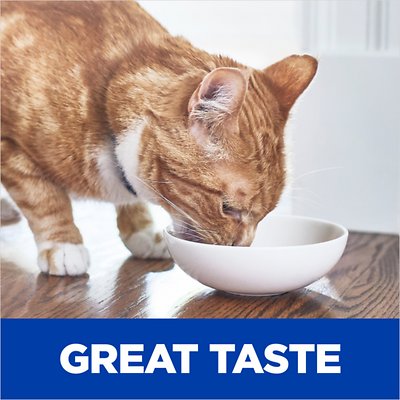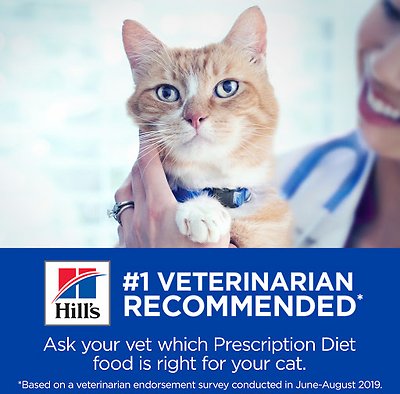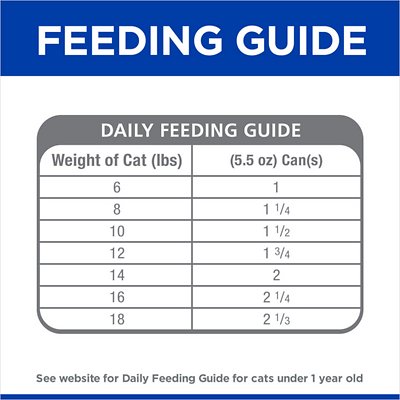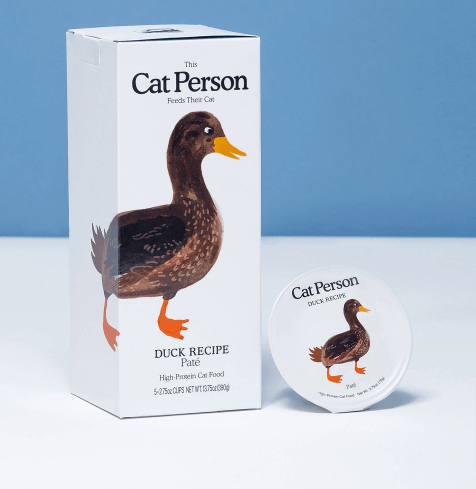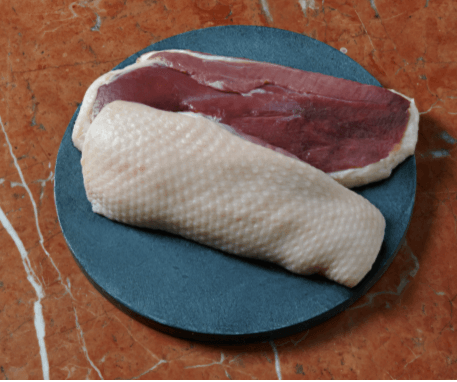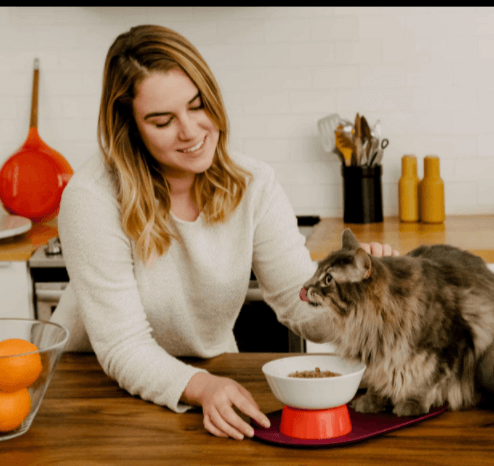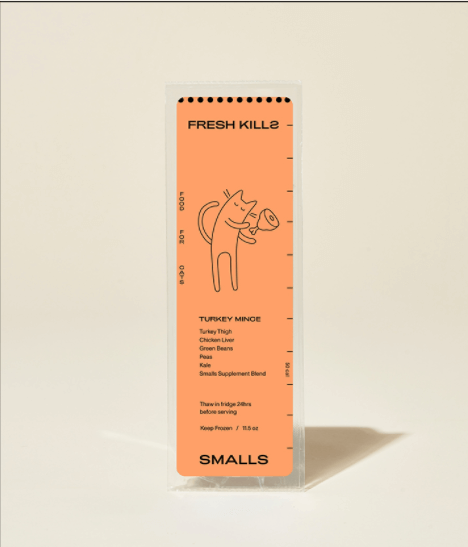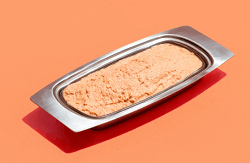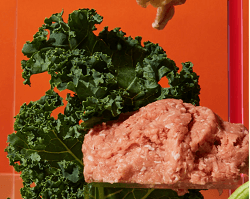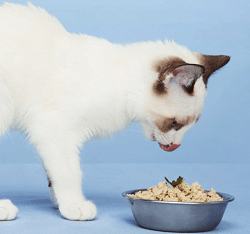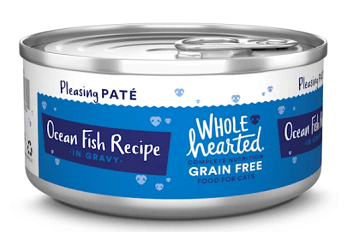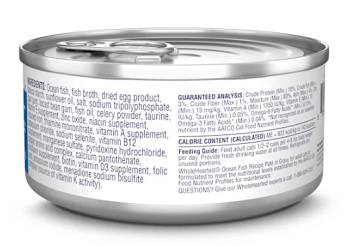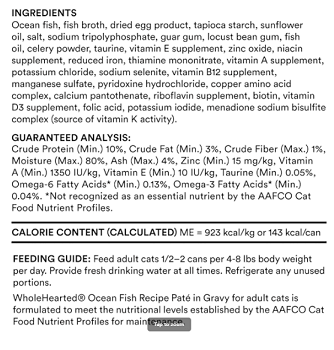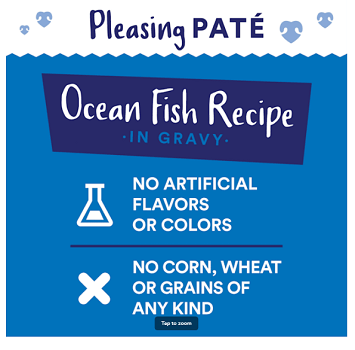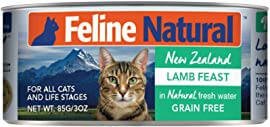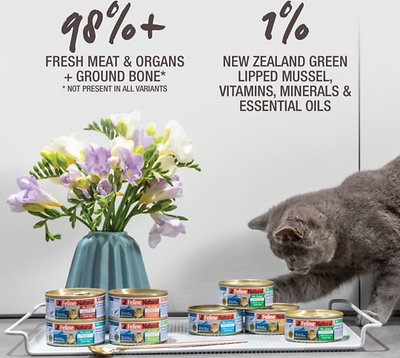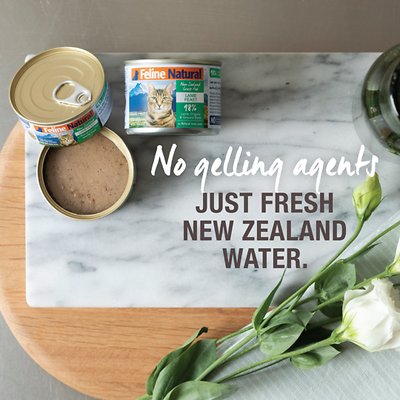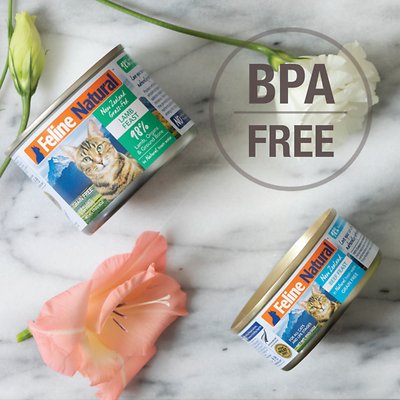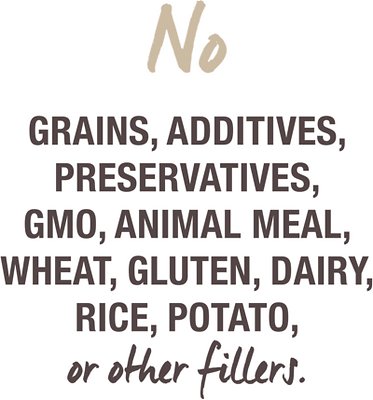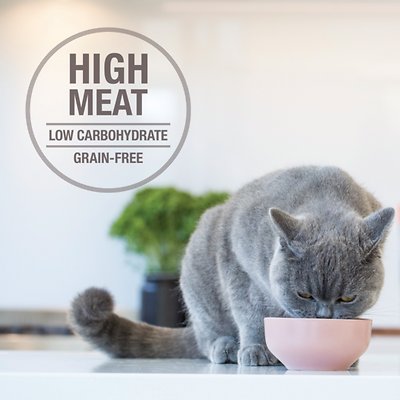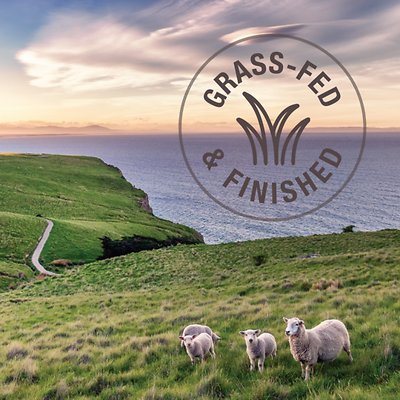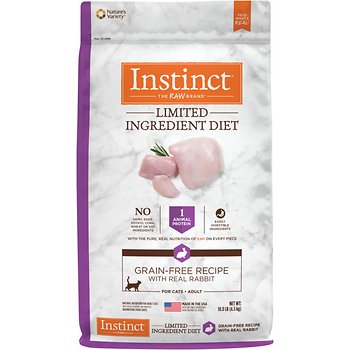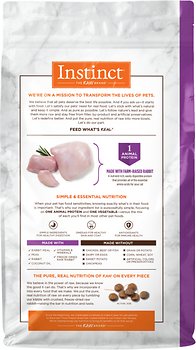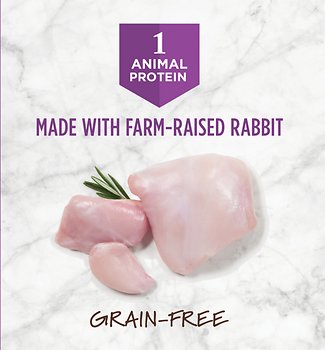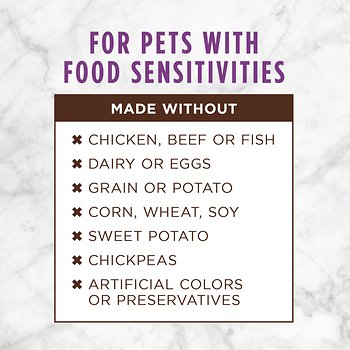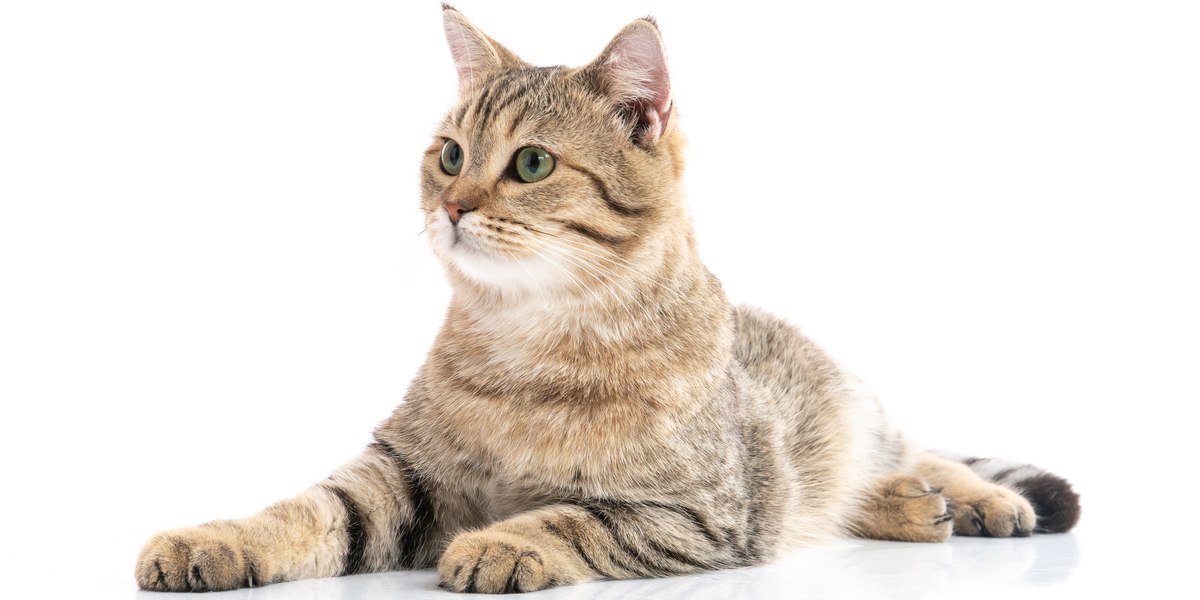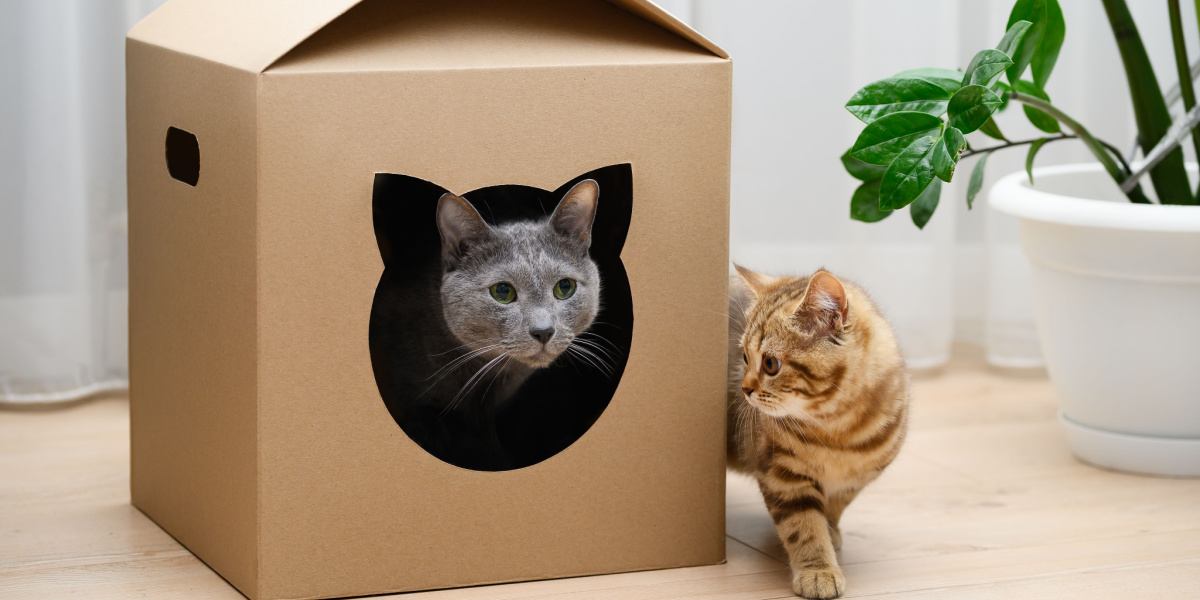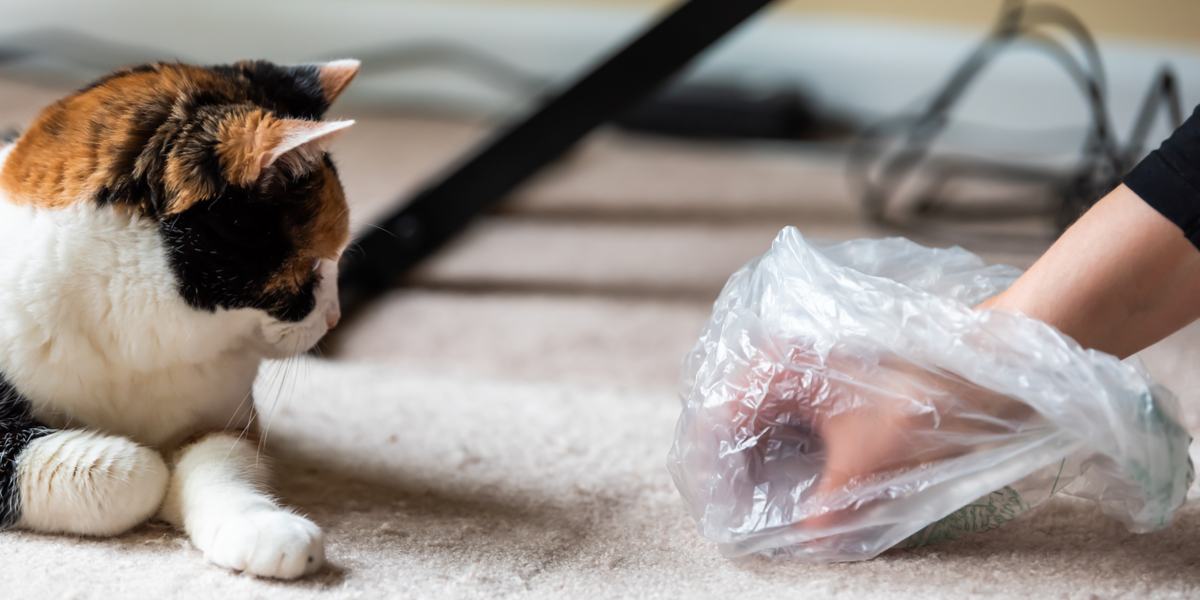6 Best Cat Foods For IBD
This page contains affiliate links. We may earn money or products from the companies mentioned in this post through our independently chosen links, which earn us a commission. Learn More
The best cat food for IBD (inflammatory bowel disease) is easy to digest, helps heal the gut lining, contains anti-inflammatory ingredients, and helps to restore a healthy balance of gut flora.
That’s why we recommend Hill’s Prescription Diet z/d Original Skin/Food Sensitivities Canned Cat Food as the best cat food for IBD. This veterinary diet helps to prevent the immune response that causes IBD symptoms and, when fed along with any other prescribed forms of treatment, can help your cat start to feel better.
At A Glance: Best Cat Food For IBD To Buy
We highly recommend looking at the comparison table we have below where we highlighted the features of each product in this roundup. You’ll also find more detailed information about each product later in the article.
Compare Best Cat Food For IBD
|
Overall Best
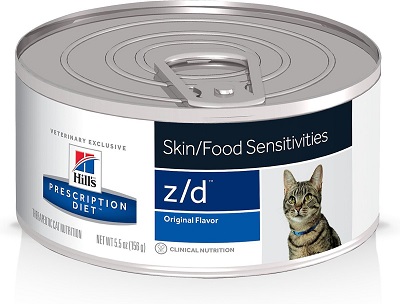
1. Hill's Prescription Diet z/d Skin/Food Sensitivities Original Flavor Wet Cat Food |
Best for Budget
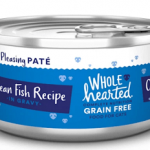
4. Whole-Hearted Grain-Free Ocean Fish Recipe Pate Adult Wet Cat Food |
Best Novel Protein
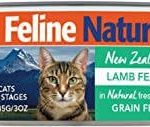
5. Feline Natural Lamb Feast Grain-Free Canned Cat Food |
Best Non-Prescription Dry
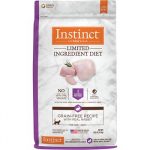
6. Instinct Limited Ingredient Diet Grain-Free Recipe with Real Rabbit Freeze-Dried Raw Coated Dry Cat Food |
||
|
Protein
7.5% Min |
Protein
10.0% min |
Protein
23.4% Min |
Protein
10.0% min |
Protein
8.0% Min |
Protein
35.0% min |
|
Fat
2.3% Min |
Fat
4.0% min |
Fat
6.6% Min |
Fat
3.0% min |
Fat
8.0% Min |
Fat
19.0% min |
|
Fiber
0.6% Max |
Fiber
1.0% max |
Fiber
0.3% Max |
Fiber
1.0% max |
Fiber
0.3% Max |
Fiber
5.5% max |
|
Life Stage
Adult |
Life Stage
Adult |
Life Stage
Adult |
Life Stage
Adult |
Life Stage
Adult |
Life Stage
Adult |
|
Type
Wet/Canned |
Type
Wet/Canned |
Type
Fresh |
Type
Wet/Canned |
Type
Wet/Canned |
Type
Dry |
|
Made In
United States |
Made In
United States |
Made In
United States |
Made In
United States |
Made In
New Zealand |
Made In
United States |
What Is IBD And How Does It Relate To Your Cat’s Diet?
IBD is an acronym that stands for Inflammatory Bowel Disease. While it presents some of the same symptoms and is often confused with IBS (Irritable Bowel Syndrome), it’s a different condition that, without appropriate treatment, may have long-lasting effects on your cat’s body.
In cats, IBD is characterized by structural changes in the GI tract and a mix of symptoms including diarrhea, vomiting, and other signs of gastrointestinal dysfunction.
In humans, the consensus is that IBD develops when the gut mucosa has an immune response to intestinal microflora and/or food triggers. In other words, the gut starts fighting against itself.
It appears that feline IBD occurs in much the same way.
Once immune dysregulation sets in, the gut health situation snowballs. Friendly bacteria die off. Tissues of the intestinal lining are damaged, flattened, and blunted. When the intricate structures of the intestinal lining are unable to do their job, the entire body suffers.
Nutrient absorption is impaired while toxins and bacteria seep through the gut lumen and into the bloodstream. When all of this has gone wrong, the result is a cat who’s losing weight, not as active as he used to be, having diarrhea, andvomiting.
Why does this happen to some cats and not others? That’s a mystery. No one knows why cats develop IBD and no one agrees on how to correct it—or if it’s possible to cure it at all.
Here’s what we do know:
What goes in your cat’s bowl is the most powerful tool for preventing and treating IBD.
Caring for a cat with IBD can make you feel helpless, but if you can choose what your cat eats, you have one of the most powerful treatment tools.
In an article on Hills Pet Nutrition, Craig Ruaux, BVSc (Hons), Ph.D., MACVSc, DACVIM-SA says that 60% of cats with chronic GI disease improve with nutritional therapy alone and don’t require steroids.
According to some people—like Anne Jablonski of CatNutrition.org—eating the right food won’t just improve the situation. She and others say that diet can cure IBD too. While there’s no agreement on just how much diet can help, there’s no doubt that it can and does affect IBD on every level.
Here’s What To Look For In The Best Cat Food For IBD.
Hypoallergenic diet to reduce the immune system’s reaction.
A hypoallergenic hydrolyzed protein diet is preferred for cats with IBD. Hydrolyzed proteins are made into small protein pieces, so small that the immune system is not stimulated and induced to react. They also include medium chain fatty acids, appropriate omega 3 to omega 6 fatty acid ratios, and pre and probiotics to support the gut microbiome.
Switching to a novel protein diet—one that contains a protein source your cat’s not eaten before—is a good idea. Cats develop sensitivities to the foods they eat most often. Choose a protein source that your cat has not eaten or experienced before.
Moisture-rich to prevent dehydration.
Between vomiting, having diarrhea, and potentially losing their appetite, cats with IBD can lose fluids and are prone to dehydration. Feeding a moisture-rich diet is the easiest way to replenish that moisture and to keep the body healthy. This is only the first of many reasons why canned and freshly-cooked foods are the best options for cats with IBD.
Digestible—cats with IBD need foods that are easy to metabolize.
It’s recommended that cats with IBD have a diet with at least 87% protein digestibility. Though research on protein digestibility in cats is limited, this appears to rule out most animal by-products and rendered animal feed ingredients, along with most plant-sourced protein sources like corn gluten meal and pea protein. Instead, the best cat food for cats with IBD contains fresh, minimally processed protein sources.
Simplicity is key for IBD.
Because IBD may stem from an immune response to dietary antigens, it helps to know exactly what your cat’s eating. Choose as simple a diet as possible. Ideally, cats with IBD should be on a single-protein food with two or three main ingredients on top of supplements.
You will also want to avoid vaguely named meat or animal by-products. Since you can’t see the name of the species, it’s anyone’s guess which proteins you’re putting in your cat’s bowl.
Included anti-inflammatory components.
Given that IBD is fundamentally an inflammatory condition, the best cat food for IBD is one that fights inflammation. Look for foods that contain inflammation-fighting omega-3 fatty acids from animal sources like fish oil and green-lipped mussels.
It also doesn’t contain any inflammatory ingredients. Additives that might stir up inflammation include artificial colors, sweeteners, and carrageenan.
Our Top Picks For The Best Cat Food For IBD
Now that you have a better understanding of what IBD is and how it affects your cat, you have the tools you need to choose an appropriate diet to start healing your cat’s gut. Below you’ll find an assortment of recommended foods for cats with IBD that are made with easily digestible ingredients, rich in moisture, and enriched with anti-inflammatory components.
Here are our top picks for the best cat food for IBD you should consider:
Hill's Prescription Diet z/d Skin/Food Sensitivities Original Flavor Wet Cat Food
Product Info
- Protein: 7.5% Min
- Fat: 2.3% Min
- Fiber: 0.6% Max
- Life Stage: Adult
- Type: Wet/Canned
- Made In: United States
Guaranteed Analysis

Dry Matter Basis

- Hydrolyzed protein to prevent immune reaction
- Rich in the moisture your cat needs for hydration
- No inflammatory or artificial additives
- Limited list of main ingredients, easily digestible
- Contains some corn products (cornstarch)
- Main source of added fat is plant-based (soybean oil)
Aside from the hydrolyzed chicken liver, this recipe contains very few main ingredients. Water provides an added source of hydration while cornstarch and powdered cellulose act as thickeners and sources of fiber. The primary added fat is soybean oil, a plant-based fat, which we would prefer to see replace with something animal-based like chicken fat or fish oil.
Other than these, the only remaining ingredients are vitamin and mineral supplements used to ensure balanced nutrition.
While we generally prefer to avoid cat foods made with corn, wheat, and soy ingredients, this veterinary diet from Hill’s has a good reputation among cat owners for being easy to digest and well-tolerated by cats with food allergies and sensitive digestion.
Cat Person Duck Pate Recipe Cat Food
Product Info
- Protein: 10.0% min
- Fat: 4.0% min
- Fiber: 1.0% max
- Life Stage: Adult
- Type: Wet/Canned
- Made In: United States
Guaranteed Analysis

Dry Matter Basis

- Made with a single, novel source of animal protein
- Rich in moisture and omega fatty acids
- Limited list of ingredients, very low in carbohydrate content
- Available in both pate and shreds in broth
- Only available for purchase online
- Main source of added fat is plant-based
This pate style canned food is made with 95% more protein than the industry standard and it is completely free from grains and low-value fillers like corn, wheat, soy, and potatoes. It contains a very limited number of carbohydrate ingredients with an estimated carb content of under 3%.
In addition to being packed with animal protein and moisture, this formula features a novel source of protein. Duck is a digestible protein for most cats and, other than egg, it is the only source of protein in this recipe. Overall, this is a simple, digestible, and moisture-rich formula.
We also appreciate that while this formula contains sunflower oil as the primary added fat, fish oil appears later on the list as an animal-based fat and rich source of omega fatty acids.
Smalls Other Fresh Ground Bird
Product Info
- Protein: 23.4% Min
- Fat: 6.6% Min
- Fiber: 0.3% Max
- Life Stage: Adult
- Type: Fresh
- Made In: United States
Guaranteed Analysis

Dry Matter Basis

- Made with human-grade ingredients
- Rich in animal-based protein and moisture
- Limited list of simple, whole-food ingredients
- No artificial additives or inflammatory ingredients
- Recent recall and customer service issues
- Only available with a subscription
- Somewhat pricey compared to average wet food
This Smalls Fresh Other Ground Bird formula features fresh turkey thigh as the primary ingredient with chicken liver as a supplementary source of protein. While technically not a single-source protein recipe because of the added chicken liver, this formula is still highly digestible and fairly simple.
Aside from the turkey thigh and chicken liver, this recipe contains only green beans, peas, kale, and vegetable oil on top of the vitamin and mineral supplements. We’d prefer to see an animal-based source of fat over the vegetable oil and could do without the added carbs, but overall this is a good recipe.
While we applaud Smalls for using human-grade ingredients and providing fresh, nutrient-rich food for cats, the company has had some issues of late. In addition to a voluntary recall in June 2021, Smalls has been having customer service issues for some time.
All that being said, Smalls is actively working to resolve these issues, so we’re expecting to see the customer experience start moving in a more positive direction.
Whole-Hearted Grain-Free Ocean Fish Recipe Pate Adult Wet Cat Food
Product Info
- Protein: 10.0% min
- Fat: 3.0% min
- Fiber: 1.0% max
- Life Stage: Adult
- Type: Wet/Canned
- Made In: United States
Guaranteed Analysis

Dry Matter Basis

- Gives you access to a team of nutrition experts
- Free of commonly inflammatory ingredients
- Single-protein ingredient list
- Features readily-digestible animal ingredients
- One of the most expensive foods you can buy
- Only available with a subscription
This formula starts off strong with ocean fish as the main ingredient followed by fish broth for moisture and dried egg for supplemental protein. Aside from these ingredients, this formula only contains tapioca starch and a few gums (guar gum and locust bean gum) as thickening agents, sunflower oil, fish oil, and an assortment of vitamin and mineral supplements.
We’d prefer to see the fish oil replace the sunflower oil as the primary source of added fat and we could do without the tapioca starch, but overall, this canned food offers a decent source of protein, moisture, and balanced nutrition.
While this formula is protein- and moisture-rich and generally fairly digestible, there are some customer comments about cats vomiting after eating Whole-Hearted cat food. It’s unclear what the issue is and whether it’s something about the food or the cats, but it’s worth considering if your cat has a sensitive stomach and tends to vomit easily.
Feline Natural Lamb Feast Grain-Free Canned Cat Food
Product Info
- Protein: 8.0% Min
- Fat: 8.0% Min
- Fiber: 0.3% Max
- Life Stage: Adult
- Type: Wet/Canned
- Made In: New Zealand
Guaranteed Analysis

Dry Matter Basis

- Made with a single source of novel protein
- Contains nutrient-rich organ meats and ground lamb bone
- Rich in moisture for proper hydration
- No inflammatory ingredients or artificial additives
- Fairly expensive compared to average canned food
In addition to being loaded with animal-based protein, this formula contains New Zealand green mussel and fish oil, two animal-based ingredients that provide omega fatty acids and essential nutrients. The ground lamb bone provides an excellent source of minerals as well.
Overall, this canned food formula is rich in species-appropriate nutrition and contains the moisture your cat needs for proper hydration and smooth digestion. It doesn’t contain any inflammatory ingredients or artificial additives and the only source of added carbohydrate is flaxseed flakes.
Instinct Limited Ingredient Diet Grain-Free Recipe with Real Rabbit Freeze-Dried Raw Coated Dry Cat Food
Product Info
- Protein: 35.0% min
- Fat: 19.0% min
- Fiber: 5.5% max
- Life Stage: Adult
- Type: Dry
- Made In: United States
Guaranteed Analysis

Dry Matter Basis

- Fresh rabbit provides a rich source of novel animal protein
- Fairly simple recipe with a limited list of ingredients
- Freeze-dried raw rabbit adds flavor and nutrition
- No inflammatory ingredients or artificial additives
- Doesn’t contain the moisture your cat needs
- Both sources of added fat are plant-based
- Peas are very starchy, carb content of the recipe is fairly high
Though we love that this recipe contains a single source of novel animal protein, we’d prefer to see at least one of the added fats be swapped with an animal-based option like fish oil or chicken fat. It also wouldn’t hurt to remove the peas or at least replace with them with a lower starch option.
All that being said, this dry food is made with a limited list of ingredients and is very rich in protein, we’d just recommend moistening it with water or broth to make sure your cat gets the moisture he needs.
Sometimes, A Great Diet Isn’t Enough.
In addition to a superb diet, cats with IBD can benefit from certain supplements.
Probiotics and Prebiotics
Adding a probiotic supplement can help cats with IBD in multiple ways. This beneficial bacteria can help to bring the gut flora back into balance while acting as an immunoregulatory agent, helping to control inflammation. The best probiotics for cats are well-researched, come from reputable brands, and guaranteed levels of trusted strains.
Vitamin B12 Supplements
Because IBD inhibits nutrient absorption, most cats with IBD are deficient in vitamin B12. A top-rated multivitamin can help to fill in any nutritional gaps. Your veterinarian will let you know if a subcutaneous B12 injection is necessary.
Bone Broth
Bone broth, made by simmering whole animal bones and connective tissues for hours, is a nutrient-rich supplement with benefits for cats with IBD. It’s a good source of collagen, which is a source of the amino acids proline and glycine, which have healing, anti-inflammatory properties.
It’s also an excellent source of the moisture your cat needs and may help encourage him to eat more. Be sure to make or buy unseasoned bone broth—some broths contain onion, salt, and other ingredients that could harm your cat.
IBD is frustrating, but with the right resources, you can make it better.
On top of finding the right food, treating IBD takes time, attention, and knowledge. Fortunately, you have access to a world of resources. Some of the most helpful sites for IBD cat guardians include IBDKitties, Cat Nutrition, Veterinary Partners, and the Merck Veterinary Manual.
Relevant Articles:
- IBD in Cats: Symptoms, Diagnosis, and Treatment
- The 10 Best Probiotics for Cats
- The 10 Best Healthiest Canned, Soft & Wet Cat Foods for 2021

